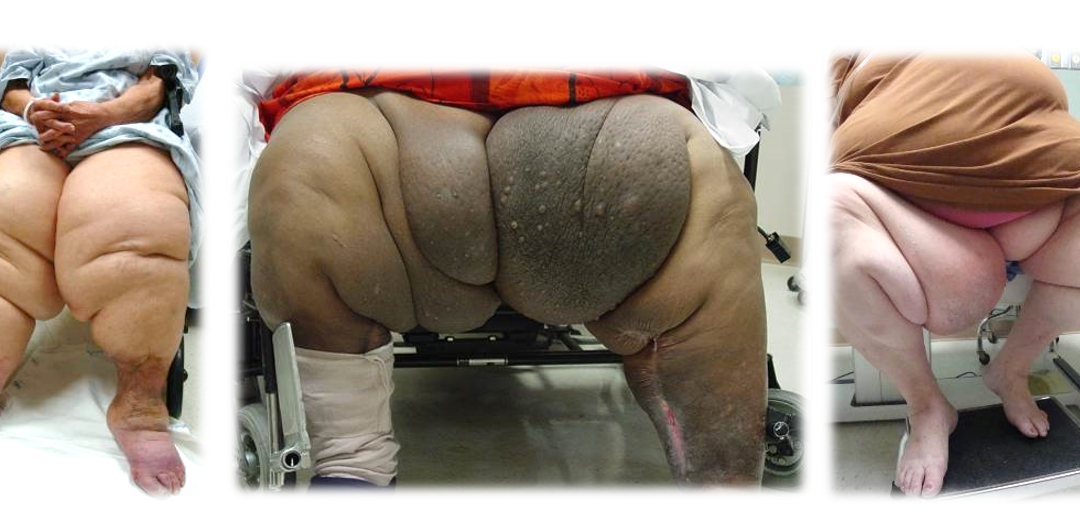I worry a lot about the relationship between obesity and chronic wounds. Obesity is linked to diabetes and diabetic neuropathy. It causes a chronic inflammatory state, it often leads to lymphedema, and it is often associated with chronic leg dependency due to chair sleeping, which may be due to sleep apnea which causes subsequent right heart failure (and more leg edema) – all of which contribute to the development of chronic wounds. And that’s the short version.
Unfortunately, obesity impacts our ability to provide care. I had to replace all the furniture in the waiting room with bigger chairs and loveseats, buy scales that could weigh patients up to 700 lbs, and buy sturdier exam tables and chairs. Our hospital-based clinic purchased a special electronic wheelchair that could move a patient weighing up to 700 lbs and it was in constant use by every department in the hospital. But if the problem of delivering care was limited to buying equipment, it still would not be insurmountable. The biggest problems (and those for which I don’t have answers) have to do with staffing and supplies.
Hospitals expect us to move patients in and out of a room in a few minutes. It’s just not possible to do that when it takes two or three staff members to get a patient into the room and ready for an examination – or back out into the waiting room. The bandages in the compression bandage kits are not long enough and in addition, it takes two people to put a compression wrap on a huge lower extremity. That means it simply costs more to care for obese patients – even in the outpatient setting. In many cases, the cost of supplies and staffing is more than the reimbursement for the service provided. Of course the economic issues relating to the provision of care are far less important than the health of the patient, but the economic reality threatens our ability to care for them!
I have tried everything I can think of to tackle obesity in the wound center. Before COVID, I tried to get every obese patient to attend a bariatric surgery patient conference. I provided information about weight loss programs. I encouraged modest changes to diet and lifestyle that were “doable”. But it has felt hopeless. And then a new class of weight loss drugs hit the market. I have been pondering their use because for most patients, they are not covered for weight loss and safety concerns continue to emerge.
Well, now there’s a path by which Wegovy might be covered for Medicare patients. Medicare coverage of drugs like Novo’s Ozempic has the same active ingredient as Wegovy but is only approved for the treatment of diabetes. Last month, Wegovy was approved by the FDA for lowering the risk of stroke and heart attack in overweight or obese adults who do not have diabetes. That approval would likely expand Medicare coverage for Wegovy for patients with obesity and heart disease. And that’s pretty much all the patients who come into a wound center…
I am not trying to push the use of this drug. I am just looking for answers to the hopeless feeling of seeing another patient with a BMI over 35 who needs wound care.

Dr. Fife is a world renowned wound care physician dedicated to improving patient outcomes through quality driven care. Please visit my blog at CarolineFifeMD.com and my Youtube channel at https://www.youtube.com/c/carolinefifemd/videos
The opinions, comments, and content expressed or implied in my statements are solely my own and do not necessarily reflect the position or views of Intellicure or any of the boards on which I serve.



